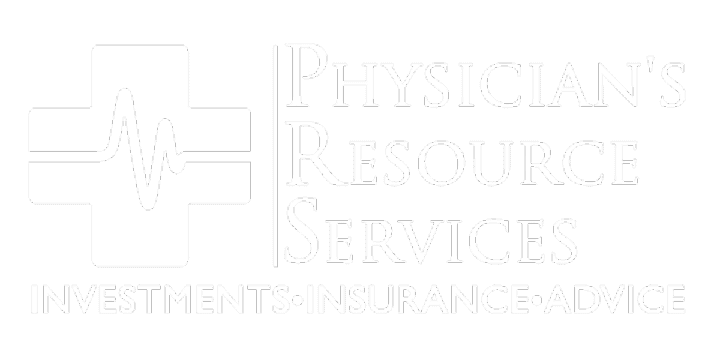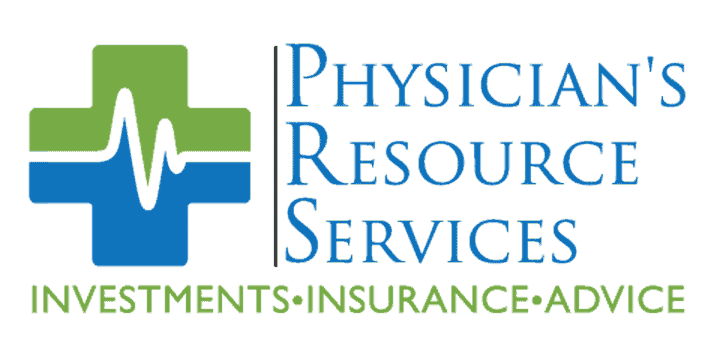 https://physiciansrs.com/wp-content/uploads/2022/08/Men-is-calculating-the-cost-of-the-bill.jpg
1250
2000
AbstraktMarketing
/wp-content/uploads/2022/03/prs-logo-color.png
AbstraktMarketing2022-08-02 09:00:312022-08-19 15:19:10Our Guide to Backdoor Roth IRAs
https://physiciansrs.com/wp-content/uploads/2022/08/Men-is-calculating-the-cost-of-the-bill.jpg
1250
2000
AbstraktMarketing
/wp-content/uploads/2022/03/prs-logo-color.png
AbstraktMarketing2022-08-02 09:00:312022-08-19 15:19:10Our Guide to Backdoor Roth IRAsTax Planning for Doctors: How to Choose the Right Tax Advisor
It’s no secret that doctors have unique financial and tax-related needs. From navigating complex healthcare regulations to making the most of industry-specific deductions, physicians and other medical professionals require strategic tax planning to ensure optimal financial health. This not only involves understanding the nuances of the tax landscape but also choosing the right tax advisor. In this blog, we’ll discuss why tax planning is essential for doctors, the unique challenges they face, and the critical factors to consider when selecting a tax advisor.
Why Doctors Need Tax Planning
When it comes to juggling the complexities of medical practice and personal finances, doctors often face unique challenges. But why is tax planning for doctors often pushed to the backseat? It’s not just about reducing your taxable income or leveraging tax breaks. There’s a lot more worth considering. From liability concerns to complex investment options and changing financial goals—doctors need to stay ahead of the game.
Tax planning for doctors is an essential part of financial planning. It provides an avenue to minimize tax liabilities while maximizing retirement savings, thus keeping more money in your pocket. Tax planning helps doctors navigate the complex tax code and identify tax-saving strategies, legal tax deductions, and credits specific to doctors and physicians.
The Unique Tax Challenges Faced by Doctors
Doctors, especially those running their own medical practices, face unique tax challenges. Whether you’re operating as a sole proprietorship, handling rental income from real estate, or managing other income streams, the tax scenarios can be varied and complicated.
Doctors need to manage not just their professional income but also their investment returns, which could include proceeds from real estate, stocks, or mutual funds. On top of these, there are tax credits such as the work opportunity credit and benefits like the health savings account, which require careful consideration and planning.
Proper estate planning can also ensure that physician families protect their assets for generations to come.
How Tax Planning Affects Your Income
As a doctor, effective tax planning could be the difference between a hefty tax bill and a robust retirement plan. Strategies such as maximizing contributions to qualified plans, making smart charitable donations, or choosing a Roth IRA over a traditional IRA can potentially save thousands in taxes.
Simply put, by understanding the tax code, knowing the ins and outs of tax deductions, and implementing tax strategies, you can reduce your tax burden while growing your savings.
Why Choosing the Right Tax Advisor Is Critical for Your Financial Health
As you can see, the tax landscape for doctors is complex. This is where choosing the right tax advisor becomes critical. A good tax advisor doesn’t just help you navigate the tax jungle but also aligns your tax plan with your long-term financial goals.
An advisor with experience in tax planning for doctors will understand the specific needs and can guide through the process effectively and efficiently. With a solid tax plan, tax cuts can turn into increased retirement savings, improved financial health, and peace of mind.
Read our blog to learn more about how effective financial planningimpacts your financial well-being at different stages of your career.

What to Look for When Choosing a Tax Advisor as a Doctor
Choosing a tax advisor is similar to finding the right doctor—you’re looking for proven experience, trustworthiness, and a professional who can help when the going gets tough. Let’s explore what to look for in your quest to find the perfect tax advisor.
Experience in Medical Professional’s Taxation
Experience matters, especially in a field as specialized as tax planning for doctors. Your tax advisor should have an in-depth understanding and experience in dealing with tax deductions and credits specific to doctors and physicians, as well as experience navigating complex healthcare industry regulations.
They should be adept at handling common tax errors, be it understanding the difference between gross and adjusted gross income or the nuances of tax credits. Dealing with such specifics requires someone who not only understands the tax code but also the intricacies of medical practices and regulations.
Professional Credentials
Qualifications and credentials are vitally important when selecting a tax professional. Look for certifications like Certified Public Accountant (CPA), Enrolled Agent (EA), or Certified Financial Planner (CFP). These credentials are indicative of an individual’s experience and commitment to the field of tax planning. They also ensure that the advisor is subject to ongoing training and ethical standards.
Proven Results
Like in medicine, proven results matter in tax planning. Ask potential advisors about their track record and successes they’ve had with clients in similar situations to yours, or even request testimonials. An advisor with a history of securing good tax savings for their clients is someone you want on your team.
Accessibility and Communication
Effective communication is pivotal in any professional relationship. Your tax advisor should be responsive, accessible, and able to explain complex tax issues in a way that’s easy to understand. They should be available to answer your questions promptly and keep you updated about changes in the tax landscape that might affect you.
Continuing Education
Tax laws and regulations are constantly changing. Therefore, it’s crucial to select a tax professional who stays updated with current tax laws and regulations. In the world of taxation, ongoing professional development and industry knowledge are not just desirable but essential.
A Proactive, Future-Focused Approach to Tax Planning for Doctors
A good tax advisor won’t just focus on the present but will also have a proactive, future-focused approach. They’ll constantly look for opportunities to reduce your tax liability both now and in the future, helping you adjust your tax strategies according to changing financial goals and life stages.
Understanding Your Tax Needs
Finally, it’s important to match your specific tax needs with the right tax professional. Whether you run a private practice or work in a large hospital, your tax scenario will be unique. The ideal tax advisor must understand your individual needs and be able to tailor a tax plan that’s just right for you.
Tax planning for doctors can be complex, but working with a skilled, knowledgeable, and proactive tax advisor can make the process smoother and more efficient. So, start planning now for this year’s tax season and make strategic decisions for a healthy financial future.
Plan for This Year’s Tax Season With Physician’s Resource Services
As tax season approaches, don’t miss the opportunity to optimize your finances with Physician’s Resource Services’ professional tax planning for doctors. Tailored to meet the specific needs of medical professionals, our advisory helps you find ways to reduce your tax bill, enhance retirement savings, and maximize deductions. Contact Physician’s Resource Services today to start on your path toward a worry-free tax season.
Advisory Services Network, LLC does not provide tax advice. The tax information contained herein is general and is not exhaustive by nature. Federal and state laws are complex and constantly changing. You should always consult your own legal or tax professional for information concerning your individual situation.
Share This Post
More Like This
 https://physiciansrs.com/wp-content/uploads/2022/08/Men-is-calculating-the-cost-of-the-bill.jpg
1250
2000
AbstraktMarketing
/wp-content/uploads/2022/03/prs-logo-color.png
AbstraktMarketing2022-08-02 09:00:312022-08-19 15:19:10Our Guide to Backdoor Roth IRAs
https://physiciansrs.com/wp-content/uploads/2022/08/Men-is-calculating-the-cost-of-the-bill.jpg
1250
2000
AbstraktMarketing
/wp-content/uploads/2022/03/prs-logo-color.png
AbstraktMarketing2022-08-02 09:00:312022-08-19 15:19:10Our Guide to Backdoor Roth IRAs https://physiciansrs.com/wp-content/uploads/2022/08/Doctor-signing-documents.jpg
1250
2000
AbstraktMarketing
/wp-content/uploads/2022/03/prs-logo-color.png
AbstraktMarketing2022-08-02 09:00:032022-08-19 21:01:40Exploring Disability Insurance for Physicians
https://physiciansrs.com/wp-content/uploads/2022/08/Doctor-signing-documents.jpg
1250
2000
AbstraktMarketing
/wp-content/uploads/2022/03/prs-logo-color.png
AbstraktMarketing2022-08-02 09:00:032022-08-19 21:01:40Exploring Disability Insurance for Physicians https://physiciansrs.com/wp-content/uploads/2022/02/Team-of-Surgeons-Operating_.jpg
1250
2000
cminor@abstraktmg.com
/wp-content/uploads/2022/03/prs-logo-color.png
cminor@abstraktmg.com2022-02-24 20:07:312022-10-04 19:36:52Ensuring Your Personal Financial Stability as a Surgeon in 2022
https://physiciansrs.com/wp-content/uploads/2022/02/Team-of-Surgeons-Operating_.jpg
1250
2000
cminor@abstraktmg.com
/wp-content/uploads/2022/03/prs-logo-color.png
cminor@abstraktmg.com2022-02-24 20:07:312022-10-04 19:36:52Ensuring Your Personal Financial Stability as a Surgeon in 2022 https://physiciansrs.com/wp-content/uploads/2022/02/Healthcare-costs-and-fees-concept.Hand-of-smart-doctor-used-a-calculator-for-medical-costs-in-modern-hospital.jpg
1250
2000
cminor@abstraktmg.com
/wp-content/uploads/2022/03/prs-logo-color.png
cminor@abstraktmg.com2021-05-03 21:29:532022-10-04 19:44:03Tips and Tricks to Reach Your Personal Financial Well-Being
https://physiciansrs.com/wp-content/uploads/2022/02/Healthcare-costs-and-fees-concept.Hand-of-smart-doctor-used-a-calculator-for-medical-costs-in-modern-hospital.jpg
1250
2000
cminor@abstraktmg.com
/wp-content/uploads/2022/03/prs-logo-color.png
cminor@abstraktmg.com2021-05-03 21:29:532022-10-04 19:44:03Tips and Tricks to Reach Your Personal Financial Well-Being
Texas-Based Physician’s Resource Services Announces Tax and Accounting Division
Uncategorized
Financial Advisors Trying to Reassure Clients Amid COVID-19 Market Volatility
Uncategorized
“You dedicate your life to helping patients with their physical health; Let us help you with your financial health.”
Locations
AUSTIN – (512)-334-6200
6500 River Place Blvd, Bldg 7, Suite 250 Austin, TX 78730
HOUSTON
6414 Fannin, Suite G-115 Houston, TX 77030
FORT WORTH
John Peter Smith Hospital 1500 South Main St. Room 02-0181 Fort Worth, TX 76104
GALVESTON
Rebecca Sealy Building 404 St Mary’s Blvd Suite 5.408 Galveston, TX 77550
This site may contain links to articles or other information that may be on a third-party website. Advisory Services Network, LLC is not responsible for and does not control, adopt, or endorse any content contained on any third-party website.
Advisory services offered through PRS Investment Advisors, a Member of Advisory Services Network, LLC. Tax services and insurance products offered through Physician’s Resource Services. Advisory Services Network, LLC and Physician’s Resource Services are not affiliated.
